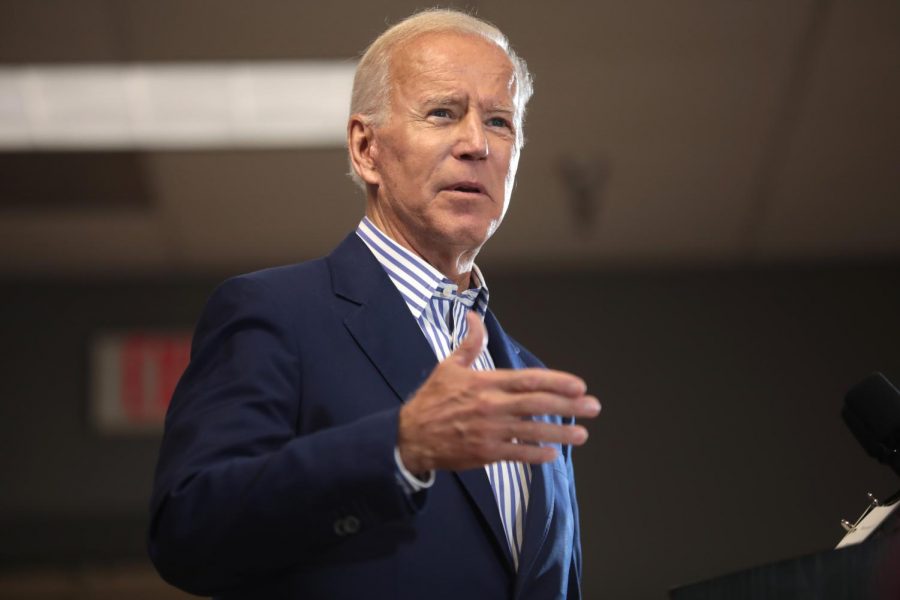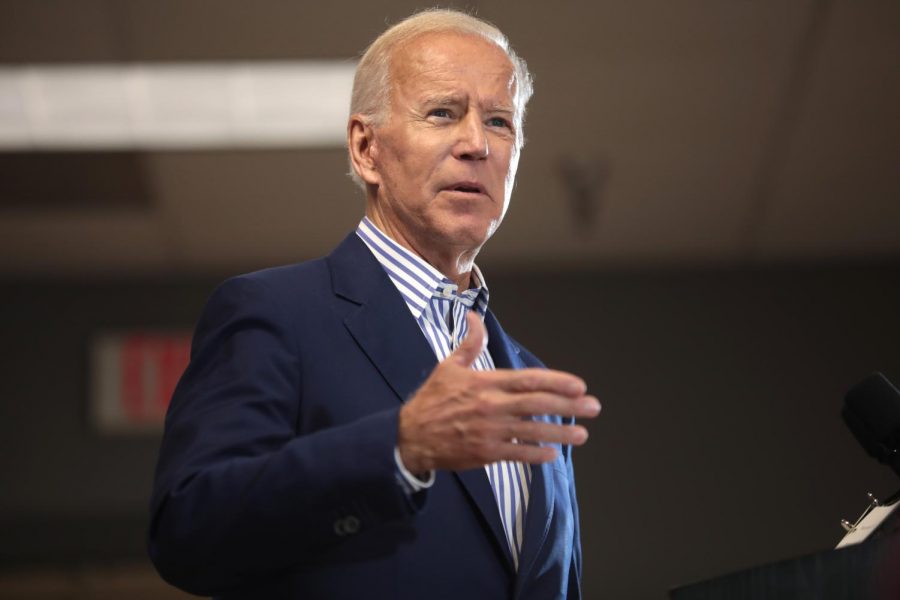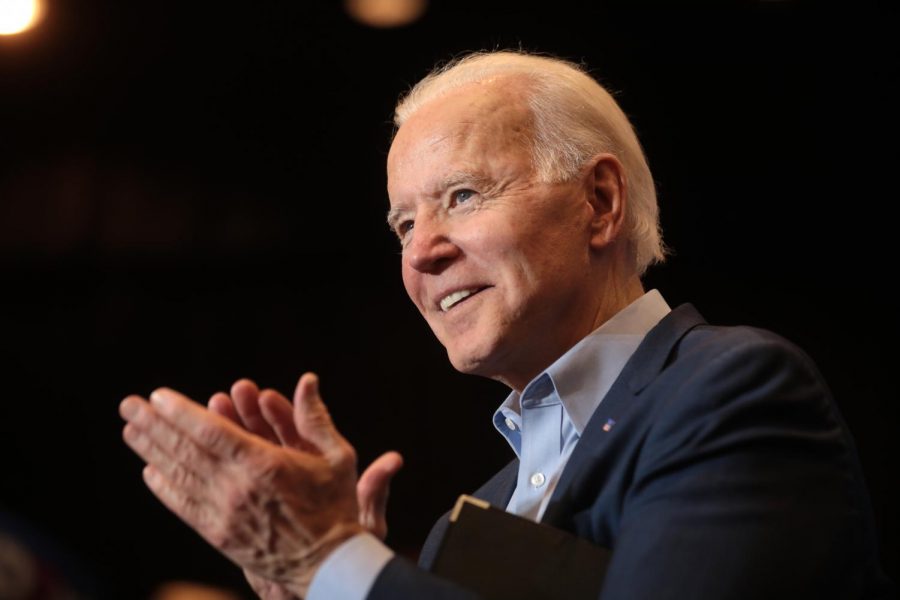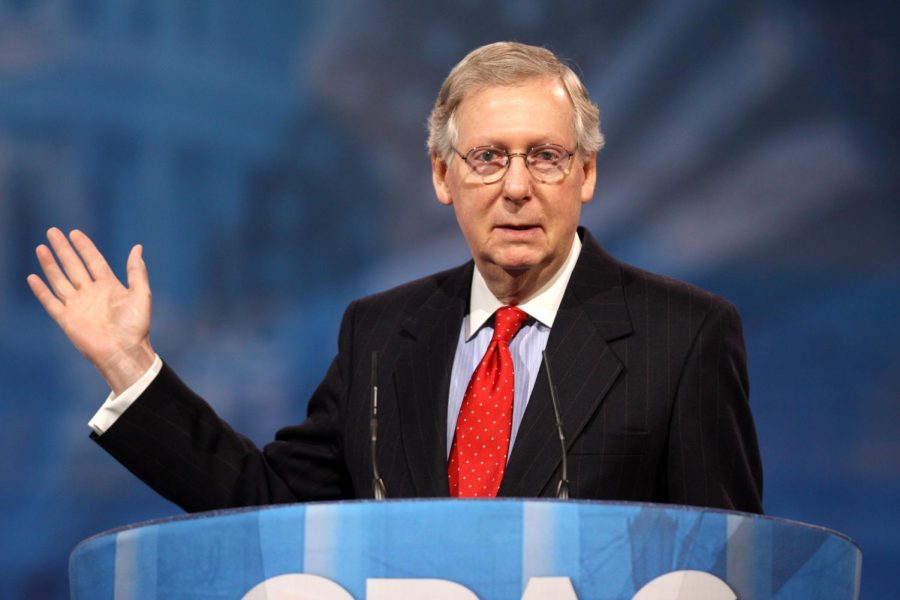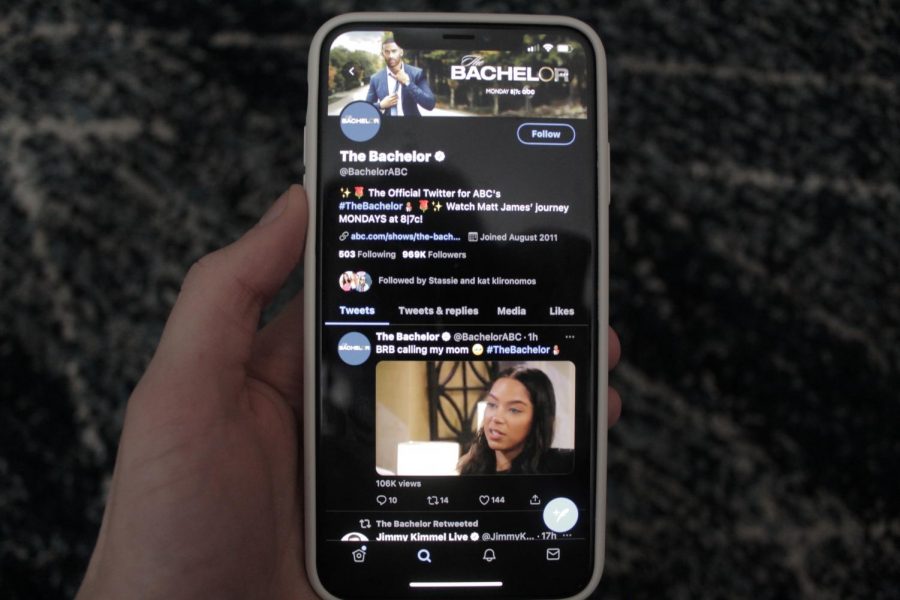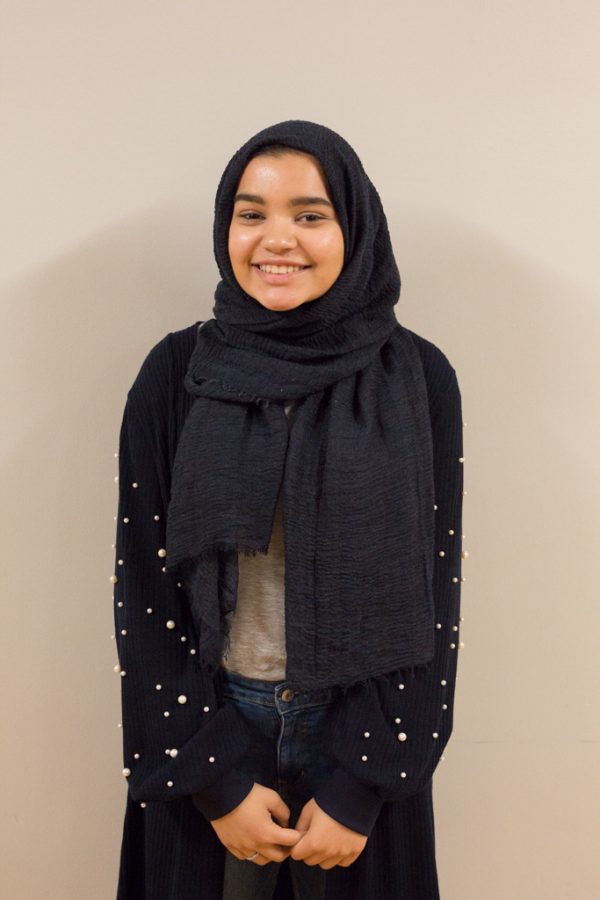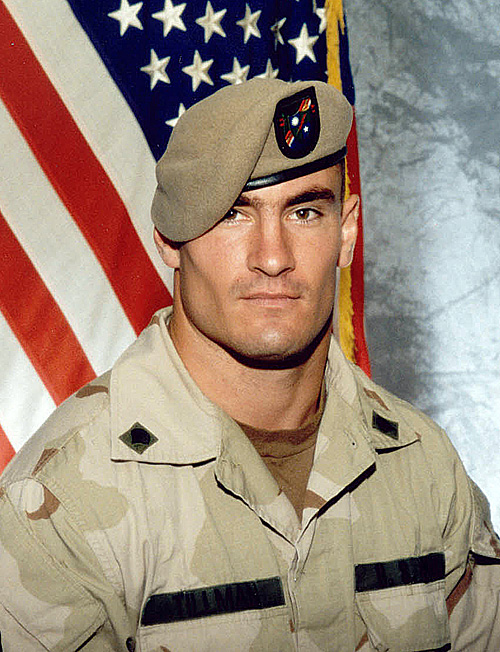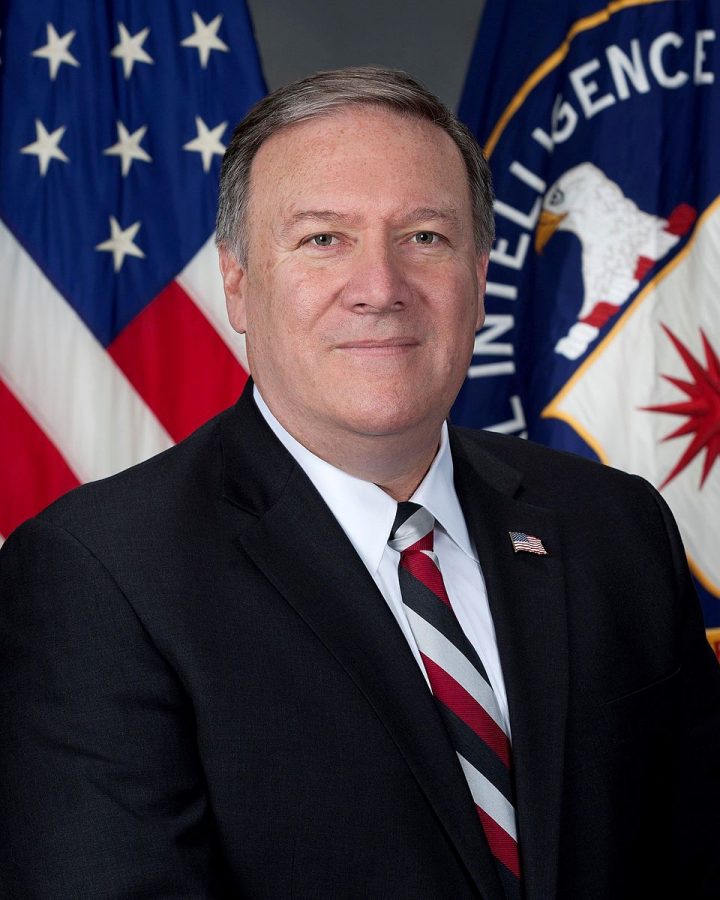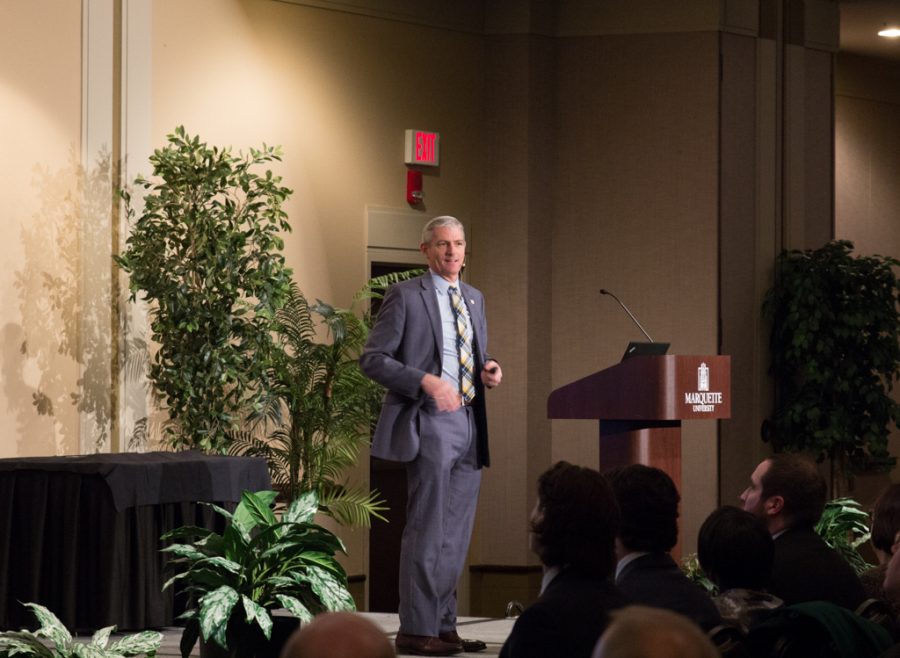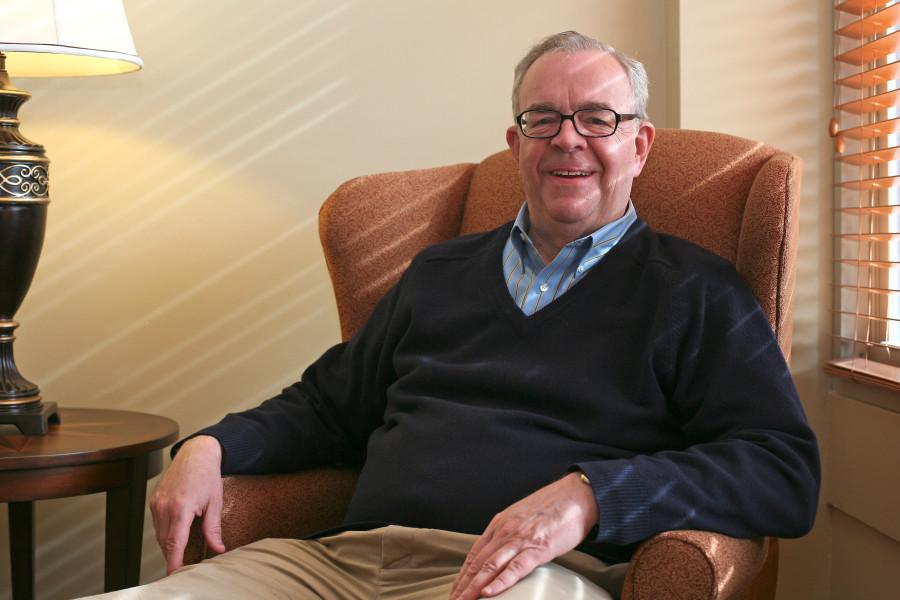Wild things were on the minds of students at Tuesday’s “Where the Wild Things Are” forum in the Alumni Memorial Union.
University President the Rev. Robert A. Wild, Provost John Pauly and Senior Vice President Greg Kliebhan fielded questions on a range of topics.
Course Evaluations
 Julie Praxmarer, a senior in the College of Education and MUSG senator, asked if there had been consideration in making the results of student course evaluations public.
Julie Praxmarer, a senior in the College of Education and MUSG senator, asked if there had been consideration in making the results of student course evaluations public.
Pauly said he supported this idea, citing his experience at other universities where this policy was in effect. He added that the university would likely move in that direction, although not every portion of the results would be public.
“Students are more than fair judges,” said Pauly, who added there was no connection between how courses are graded and the grades students get.
Wild said private evaluations are currently used in tenure and promotion decisions, but he would consider making parts of the results public if he could get a reasonable “buy-in” from the faculty.
Both Pauly and Wild said the policy changes depend on how many faculty members they can get to support the plan. Pauly said the university wants to create better professors, but also wants to ensure a “safe space” for them, especially younger ones who are still learning.
Rec Center Improvements
Paige Jorgensen, a senior in the College of Communication and MUSG senator, brought up concerns about the Rec Center.
Kliebhan said the administration was aware of the problems, including a lack of visual appeal, crowdedness and older facilities, and they are actively making short- and long- term plans to improve it.
“It is definitely on our radar screen,” Kliebhan said.
The university plans to create a third recreation area in addition to the Rec Center and the Rec Plex on the west side of campus by the second semester, Kliebhan said. Down the road, the university’s master plan includes ways to enhance the Rec Center by building an addition or building a new facility, among other options, he said.
John Sweeney, director of the Department of Recreational Sports, said he hoped to improve the Rec Center for club sports team members, as well as the everyday students. With 800 to 900 students in more than 30 club sports, Marquette has the largest percentage of students in club sports of any Jesuit university, he said.
He said the university is spending $100,000 a year on gym equipment, and a $500,000 project to replace turf at Valley Fields was recently completed.
Sexual violence
Members of the student group VOICE asked Wild what should be done to help prevent sexual violence on campus. VOICE, a group of 11 students, is devoted to preventing and raising awareness of sexual violence.
Wild said almost all instances of date rape on campus involve alcohol. It’s “part of a problem that causes a great deal of mischief in this area,” he said.
Kliebhan said VOICE could work to prevent parties where students buy plastic cups.
Pauly added that VOICE could help make faculty members more aware of issues regarding sexual violence, since professors only see students for a short period of time.
LGBT rights
Desiree Valentine, a senior in the College of Communication, and members of the Marquette Gay/Straight Alliance asked the administrators how the university plans to support LGBT students in the future.
Pauly said he and the university are committed to supporting LGBT students and eliminating anti-gay speech on campus, but said it would be “hard to mandate that” from an administrative level.
Kliebhan added that sensitivity as an institution is very important, and that there were many members of both the administration and student body who believe LGBT students are not treated in a manner consistent with Jesuit ideals. He said peer-to-peer interaction would likely be the best way to create social change.
Wild said LGBT students are part of the human family and should be treated as such on campus, and that the energy of community leaders is what will bring change.
Angela Braly
Several questioners challenged Wild on the university’s selection of WellPoint Inc. CEO Angela Braly as a speaker on campus Sept. 22.
Some objected to Braly as a speaker because WellPoint denies health care coverage to some individuals, which they said is not in line with Jesuit ideals.
Wild said Braly was selected because of her role as a woman in the business community – as head of the largest health insurance company in the country – to help commemorate the Centennial Celebration of Women at Marquette. Wild said he was delighted to have had her, in part because her presence promoted such intense discussion about the field she’s in.
“The university exists to provide a forum for precisely that,” Wild said. “You will not get me to apologize for that.”
He also added later that the decision to invite Braly was made primarily by the College of Business Administration — an invitation that was extended before the health care debate had heated up.
Other topics addressed during the forum included:
- Free STD testing: Emil Ovbiagele, a sophomore in the College of Arts & Sciences and MUSG senator, asked why the university did not offer free STD or HIV tests at Student Health Service, unlike other universities both in the United States and across the globe. Wild cited cost as the main reason. Carolyn Smith, a senior physician at SHS, said SHS doesn’t have the capability to run the tests on campus. Kliebhan said the Student Health Advisory Board could choose to cover the tests under the Student Health Fee.
- Counseling: A student who had been diagnosed with a brain tumor said he was trying to find long-term counseling, and questioned why the university’s Counseling Center only offered short-term services. Wild responded that students’ tuition can only provide so many counselors. He said there are other alternatives available, though they are sometimes more difficult to find or utilize.
- Wireless problems: Wild said the university is aware of students’ problems with wireless connections in the Raynor Library, where usage has increased. Kliebhan said connection problems on the Bridge are “not acceptable.” Both said improvements are in progress.
- Sustainability: The panel said the university is working to improve sustainability while saving money. Wild also affirmed his decision not to sign the American College & University Presidents’ Climate Commitment, which would have required the university to set a target date to go carbon-neutral within two years. Wild said the university would likely have not been able to meet the commitment because of costs. He cited the current construction and the LEED-certified McCabe Hall as representations of the university’s progress toward sustainability.
- D2L implementation: The panel said it was working to improve faculty usage of D2L. Pauly suggested students “be bold” and politely discuss the issue with professors personally.


